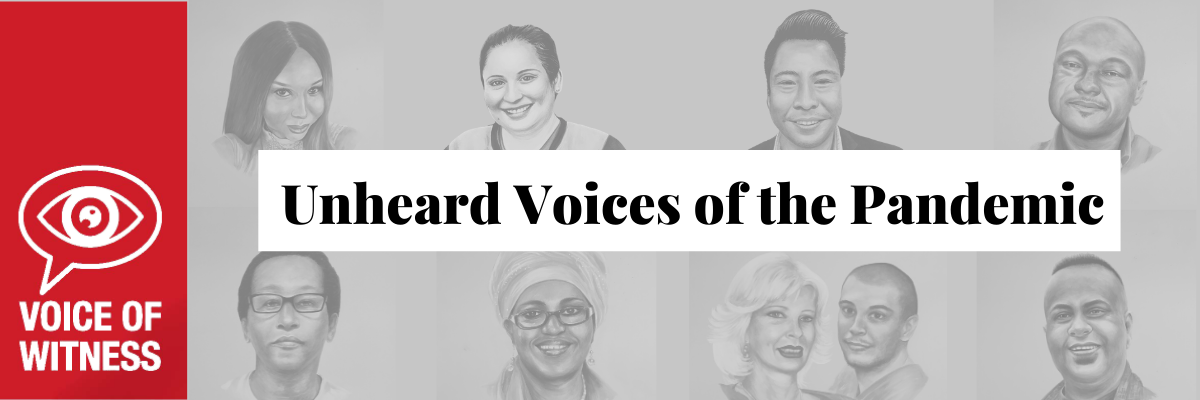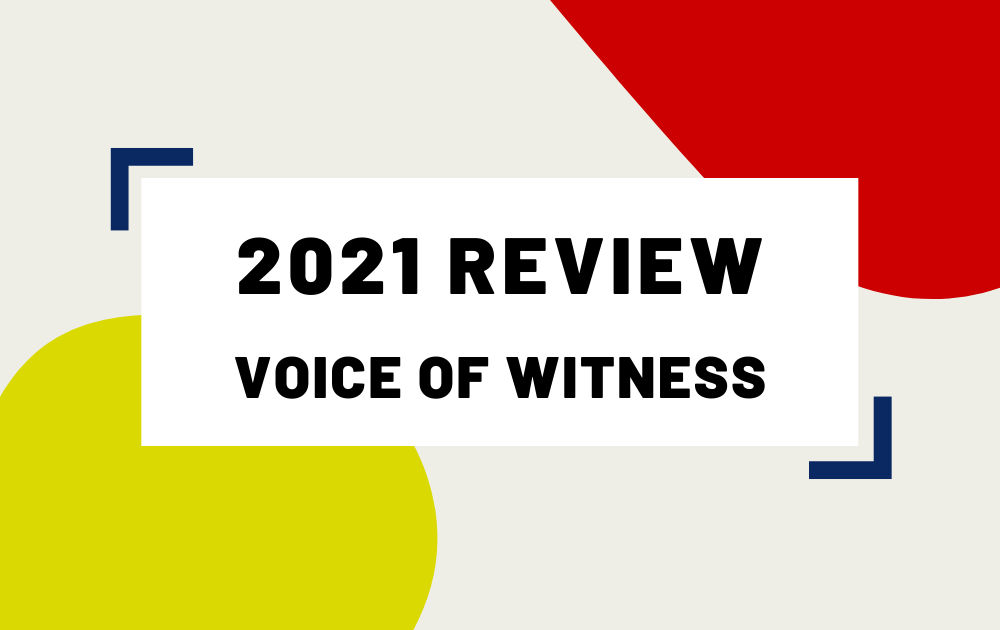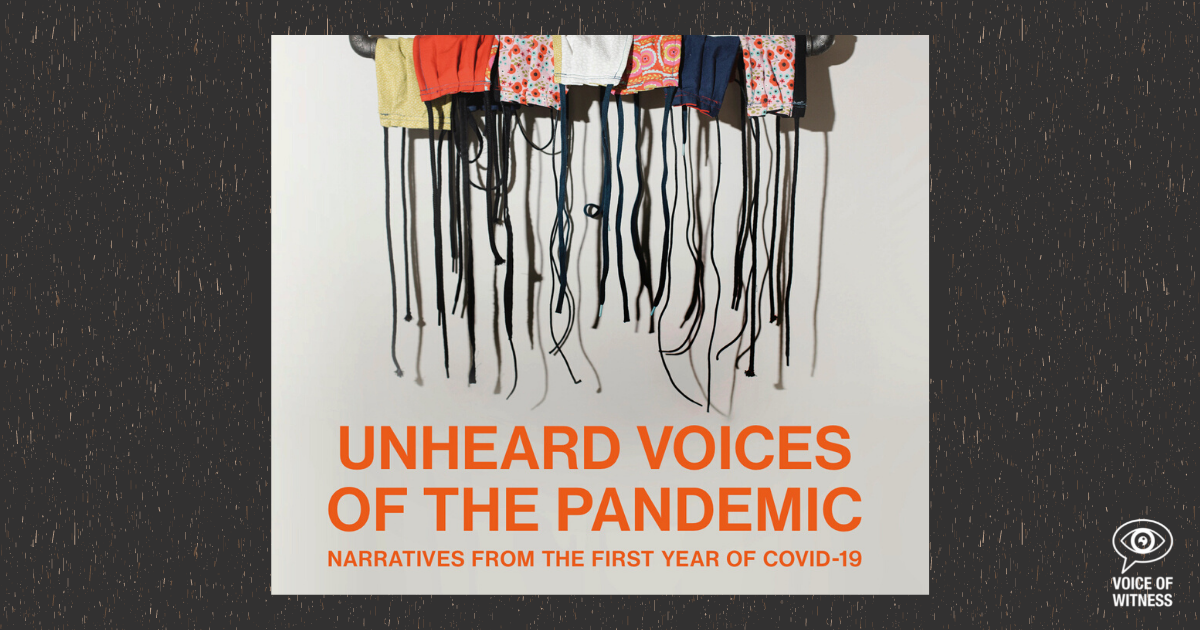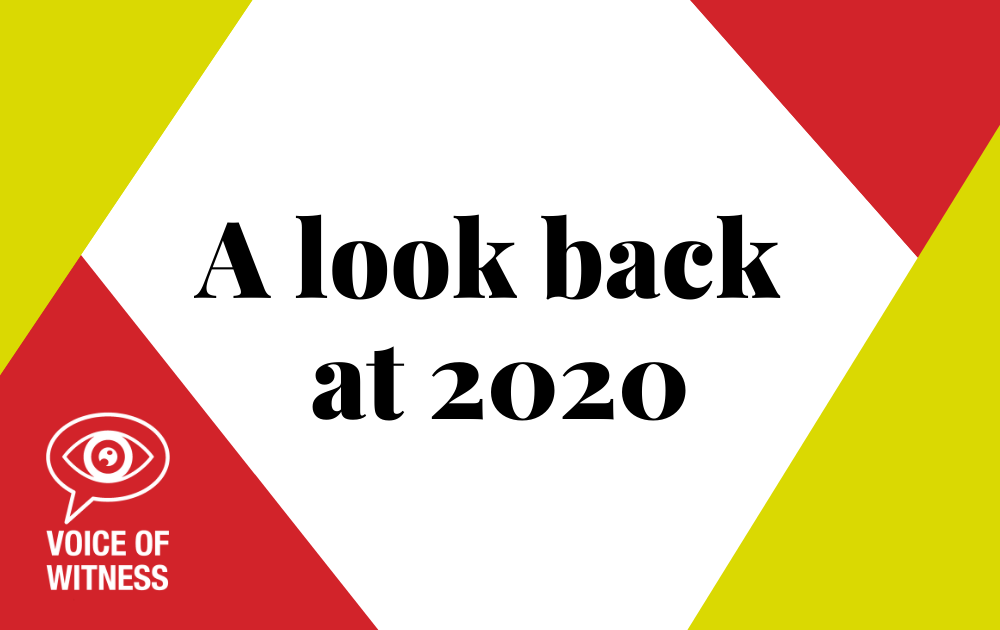
In 2020, Voice of Witness began working on a rapid-response oral history project called Unheard Voices of the Pandemic, which aims to—through critical, humanizing first-person narratives—illuminate how marginalized communities are disproportionately affected by the pandemic.
Early in the pandemic, COVID-19 was at times described as a “great equalizer” in the media, but the reality is that long-standing inequities have been further exacerbated. Voice of Witness narrator communities—including individuals and families impacted by this country’s carceral and immigration systems—have been hit particularly hard.
For the past ten years, so much of VOW’s work has been based on deep, in-person relationships—from our in-school projects with underserved students, to our oral history interviews and trainings in the field, to our partnerships supporting organizations to conduct powerful storytelling initiatives. Since in-person contact isn’t possible right now, we’ve been working virtually with our communities to launch this online storytelling initiative. Our media partners the Guardian, the Nation, Salon, and Prism have been helping us share these stories far and wide.
These narratives are now available in a booklet published by Haymarket books. The Unheard Voices of the Pandemic booklet shares 17 first-person stories that speak to the precarity, inequity, and uncertainty of that year, but also to bravery, solidarity, and generosity. This a valuable new resource for educators and advocates looking to amplify personal narratives of pandemic experiences in classrooms or campaigns.
As part of our Unheard Voices of the Pandemic initiative, read stories directly from:
- Roberto – An undocumented farmworker for more than two decades in California’s Eastern Coachella Valley, Roberto harvests eggplant for $13/hour in over 100 degree temperatures. Roberto takes pride in feeding the nation and knows his work has always been “essential,” but COVID-19 has made already-difficult working conditions in the fields even harder. Roberto’s narrative can be read in the Guardian.
- Shearod – Currently incarcerated in Michigan, Shearod speaks to the drastic changes in prison life since the COVID-19 lockdown, where it’s impossible to social distance, recreation and programming have been halted, and harsh conditions imposed. Shearod’s narrative can be read in Salon.
- Raul – An immunocompromised asylum-seeker from Mexico, Raul was transferred to a notorious immigration jail in Louisiana run by a for-profit corporation. Inside, as more people contracted the disease, ICE continued to deny Gonzalez’s parole requests until he, too, became infected. Raul’s narrative can be read in Salon.
- Claudine – A refugee from Rwanda finishing up her social work degree in Virginia, Claudine works the night shift delivering newspapers to support her family’s rent, and she worries about graduating into an uncertain job market. Claudine’s narrative can be read in Salon.
- Gabriel – After surviving long-term sexual abuse in Honduras and fleeing to the US at age 14, Gabriel struggles to continue school and support his extended family during the coronavirus lockdown in San Francisco. Gabriel speaks about barriers he sees for migrant communities and how homophobia forced him to quit his job as a janitor. Gabriel’s narrative can be read in the Nation.
- Hanima – Previously incarcerated herself, Hanima is now a graduating senior at UC Berkeley working to empower communities impacted by incarceration, who she sees struggling with food, income, and housing insecurity due to COVID-19. She is also caregiving from afar for her grandfather and concerned about the job market when she graduates. Hanima’s narrative can be read in Salon.
- Yusufu – Incarcerated as a young man, Yusufu spent 22 years in prison. Since his release, he has become an activist-educator on the South Side of Chicago. At 68, Yusufu is “like an adopted son” to many of his senior neighbors in their apartment building. Yusufu’s narrative can be read in Salon.
- Hunter – Making adult content online “is not easy money,” says Hunter, a sex worker in New Mexico. She was working four jobs prior to the COVID-19 pandemic, and each job has been impacted differently as a result of the quarantine. Hunter’s narrative can be read in Salon.
- Soledad – A housing case manager for foster youth in San Francisco, Soledad had her hours cut in half when the pandemic hit. Then her pregnancy developed serious problems, leaving her with enormous medical bills. Soledad’s narrative can be read in Salon.
- Nina – An immigrant from Guatemala, Nina owns a cleaning business that employs other immigrant women. The pandemic has severely impacted the flow of available work, but her employees are undocumented and can’t file for unemployment. Nina’s narrative can be read in Salon.
- Emmanuel – In Puerto Rico, Emmanuel and his family navigate lockdown and economic uncertainty and stress. Emmanuel’s narrative can be read in Prism.
- Oscar – A second grade teacher in a farmworker community in California, Oscar speaks about the challenges reaching his students, many of whom don’t have stable internet or housing situations. Oscar’s narrative can be read in Prism.
- Farida – A nurse and community organizer in Los Angeles, Farida speaks about being an essential worker in underfunded, unnecessarily risky conditions as the pandemic unfolded. Farida’s narrative can be read in Prism.
- Zah – Incarcerated in California for over 35 years, Zah describes his experience contracting COVID-19 during an outbreak in prison. Zah’s narrative can be read in Prism.
- Salvador – Currently living in a shelter-in-place hotel in San Francisco, Salvador speaks about his experiences with housing insecurity, disability, and isolation. Salvador’s narrative can be read in Prism.
- Theresa – A community organizer with the RAPP (Release Aging People in Prison), Theresa speaks about the abysmal health care her husband experienced while incarcerated and the lack of communication and accountability during the pandemic. Theresa’s narrative can be read in Prism.
Access the print booklet.
Questions about this project? Email editorial@voiceofwitness.org.




